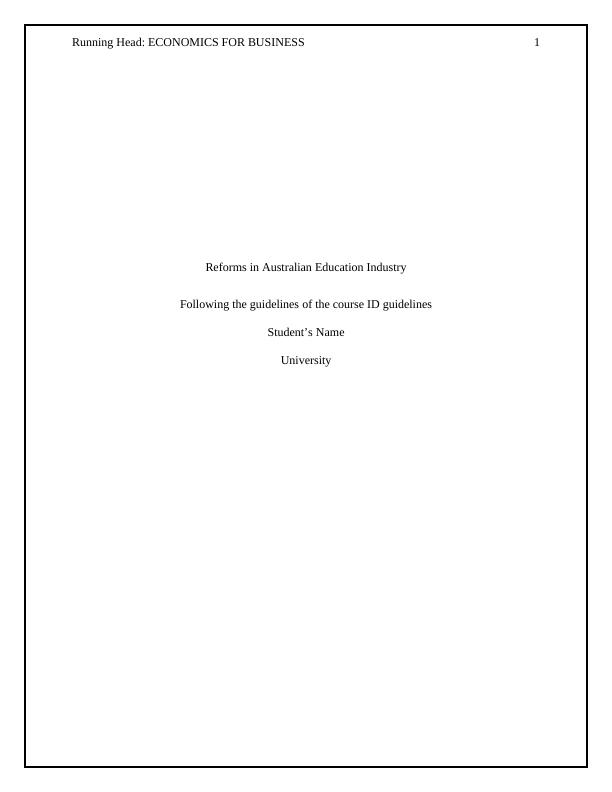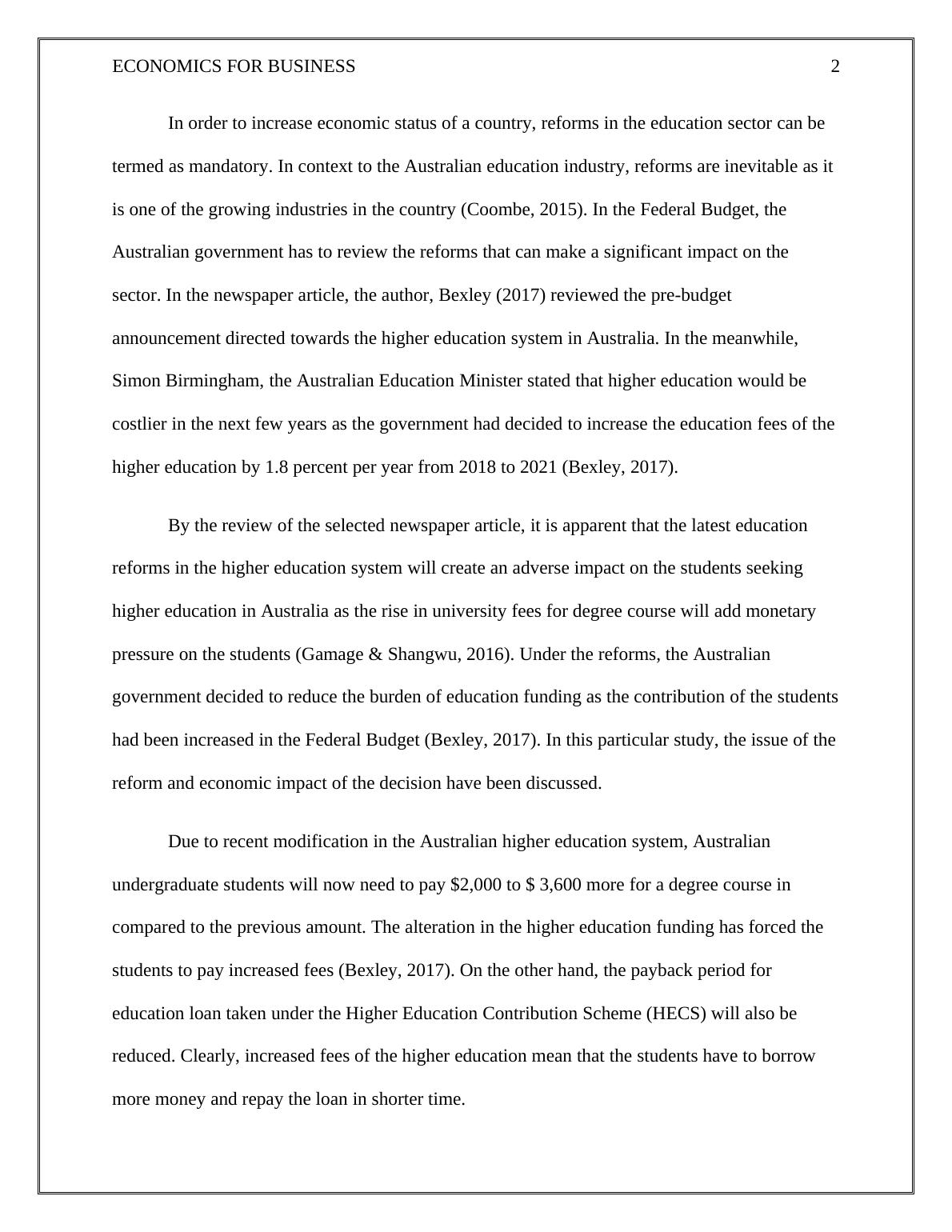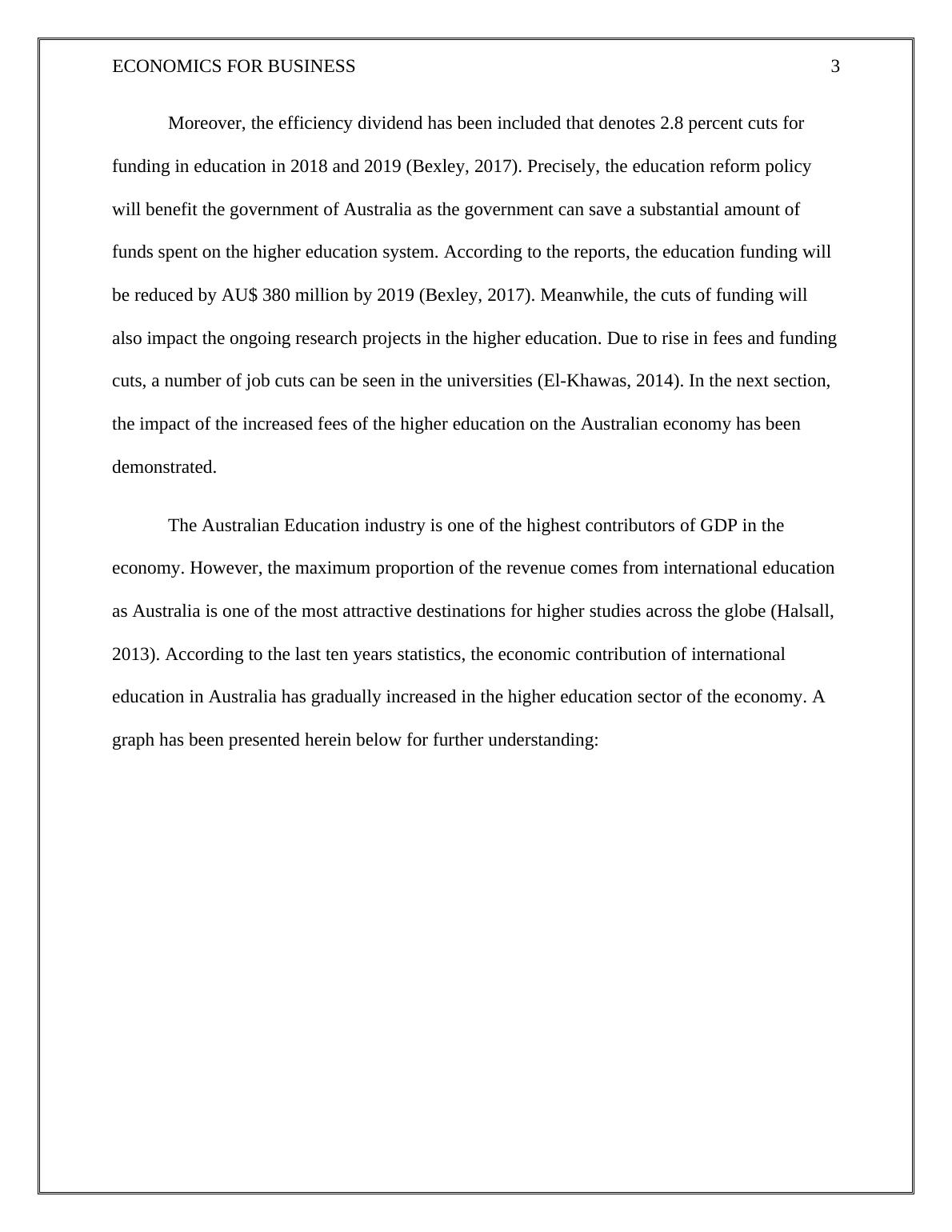Reforms in Australian Education Industry - Assignment - EDUF2006
University Of Sydney
Reforms in Education Sector in Australia (EDUF2006)
Added on 2020-03-02
About This Document
EDUF2006 - In this particular study, the issue of the reform and economic impact of the decision have been discussed. In order to increase economic status of a country, reforms in the education sector can be termed as mandatory. In context to the Australian education industry, reforms are inevitable as it is one of the growing industries in the country. Under the reforms, the Australian government decided to reduce the burden of education funding as the contribution of the students had been increased in the Federal Budget.
Reforms in Australian Education Industry - Assignment - EDUF2006
University Of Sydney
Reforms in Education Sector in Australia (EDUF2006)
Added on 2020-03-02
End of preview
Want to access all the pages? Upload your documents or become a member.



